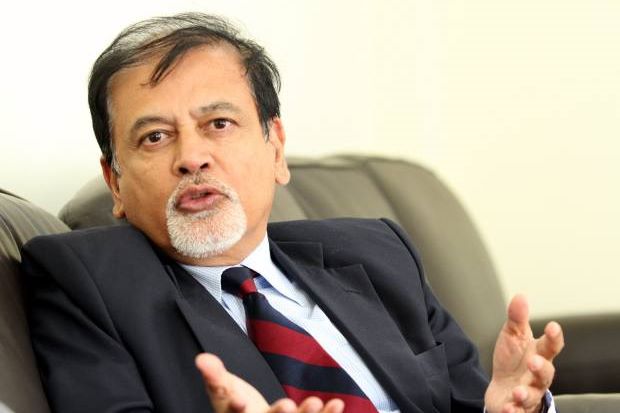KUALA LUMPUR: The Nepal Embassy received 461 death reports of Nepalese workers here last year and 70 percent of them died in their sleep due to a massive heart attack or sudden cardiac arrest.
Nepal Ambassador to Malaysia Dr Niranjan Man Singh Basnyat (pic) said the cause may be due to working long hours, especially under the hot sun while the other 30 percent was due to fatal accidents at workplace, consuming too much alcoholic drinks while a few had committed suicide due to monetary reasons.
Basnyat, who was concerned with the hardworking attitude of his countrymen who are willing to work long hours, wanted them to slow down and take care of their health.
“They might not be aware that they would suffer from fatigue after working long hours under hot and humid conditions and this can result in deaths while sleeping,” he said.
He said the embassy also recorded 2,945 deaths of Nepalese workers here over the past 10 years from 2005.
Basnyat said Nepalese workers are reportedly struggling hard to earn money, in the hope that they could remit some funds for their families or settle debts in their own country.
He hoped they will realise the importance of working for eight hours per day instead of the 12 hours per day they worked normally, to ensure they stayed healthy.
He said the tendency of Nepalese workers to consume too much alcohol is another cause of concern that has resulted in deaths due to dehydration as their body may lack water.”
In some cases, Nepalese workers have been reported to have committed suicide due to stress or monetary problems.
He pointed out that most of the Nepalese workers who come to work here have to settle debts owed to their agents or banks in Nepal for their journey to Malaysia, while some ‘pawn’ their land as collateral to secure loans to ensure their trip here.
“Some (Nepalese workers) are frustrated when they realise they do not have enough money to repay their loan and thus commit suicide as a way out from their misery. However, such cases are few,” he added.
To date, Malaysia has about 800,000 Nepalese workers, the highest compared to other countries since statistics show Saudi Arabia and Qatar have about (400,000), United Arab Emirates (300,000), Kuwait (100,000), Oman and Bahrain (50,000) respectively, he said.
Basnyat, who started his duties as ambassador here since 2013, said the embassy had taken several measures to reduce the fatalities among Nepalese here, and has also put up notices in the embassy’s website to advise them about the importance of their health.
The embassy also has a slot in Bernama Radio every Sunday from 8pm to 9pm to inform the Nepalese community here about the ‘dos and done’ while they are here.
“For instance, we always remind them to drink four litres of plain water instead of taking alcoholic drinks,” he added.
Meanwhile, according to Deputy Secretary Communication Group Human Rights Commission of Malaysia (Suhakam) Simon Karunagaram, it was normal for migrant workers to work more than 12 hours per day here.
“They have to accept such offers since it was the only way to earn more money to help settle debts or remit money to their families back home,” he said, adding that the workers are prone to sickness if they worked continuously for long hours every day.
However, Karunagaram said employers must acknowledge that their workers, including migrant workers, are allowed to work only eight hours a day in accordance with the Employment Act 1955.
“It is all up to their (workers) willingness to work more than eight hours per day. If they work more than normal time, it must be considered as working overtime (OT),” he said.
In the meantime, he urged migrant workers to step up and lodge complaints at their respective embassy or Jabatan Tenaga Kerja under the Ministry of Human Resource if they are mistreated by their employers. – Bernama
Source: http://www.thestar.com.my

